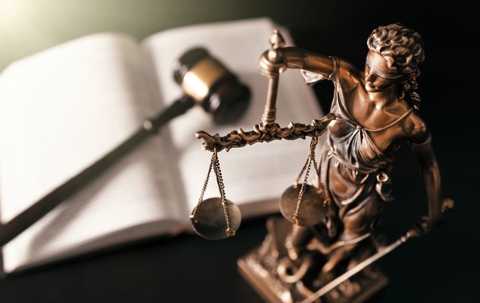Navigating Virginia's Judicial System
Virginia's judicial system plays a crucial role in ensuring that disputes are resolved justly, promptly, and economically. To accomplish this mission, the system relies on a unified court structure, competent judges, court personnel, and consistent rules of practice and procedure. Understanding the components of this system can be beneficial for anyone engaging with the courts, and having legal representation is essential for a successful outcome.
Four Levels of Courts
Virginia's Judicial System consists of four levels of courts, each serving specific purposes:
- Magistrates: Citizens often encounter magistrates as their first point of contact with the judicial system. Magistrates are responsible for independently reviewing complaints of criminal conduct brought by law enforcement or the public. They issue various processes, including arrest warrants, summonses, search warrants, emergency protective orders, and more. Magistrates also conduct bail hearings to determine pre-trial release conditions for individuals arrested. Hiring a skilled attorney early in the process can help navigate these crucial initial stages.
- District Courts: The unified district court system comprises the general district court and the juvenile and domestic relations district court. General district courts handle criminal cases involving misdemeanors and civil cases with claims up to $25,000 (up to $50,000 in personal injury and wrongful death cases). The court also handles traffic infractions. Juvenile and domestic relations district courts deal with a wide range of cases involving children, families, and domestic matters. In both court types, having competent legal representation can greatly impact case outcomes.
- Circuit Courts: As the only trial courts of general jurisdiction, circuit courts handle civil actions with varying monetary claims and have exclusive original jurisdiction over most monetary claims exceeding $25,000. They also handle criminal cases, including all felonies, which are more serious offenses punishable by imprisonment of over one year. The circuit courts play a critical role in the judicial process, making it essential to have an experienced lawyer when facing serious criminal or civil charges.
- Court of Appeals and Supreme Court: The Court of Appeals reviews decisions of lower courts in certain cases, while the Supreme Court primarily reviews decisions from the Court of Appeals and other cases involving specific issues. Both courts are appellate in nature, and skilled attorneys can assist in presenting strong arguments and navigating complex legal processes during appeals.
The Importance of Hiring a Good Lawyer
Engaging with the courts can be a daunting and complicated process, especially for individuals without legal expertise. Hiring a good lawyer is crucial for several reasons:
- Legal Expertise: Lawyers possess a deep understanding of the law and court procedures. They can provide valuable insights, prepare solid legal strategies, and present compelling arguments on behalf of their clients.
- Protecting Rights: A skilled lawyer ensures that your constitutional rights are protected throughout the legal proceedings. They can challenge any violations or irregularities that may occur during the case.
- Negotiating Skills: Lawyers are adept at negotiations, which can lead to favorable settlements or plea deals. They can also explore alternative dispute resolution methods to avoid lengthy court battles.
- Case Preparation: Lawyers thoroughly investigate and gather evidence, interview witnesses, and build a strong case to support your defense or claims.
- Courtroom Advocacy: In court, lawyers represent their clients with confidence and professionalism. Their courtroom advocacy can significantly influence judges, juries, and opposing counsel.
- Mitigating Penalties: In criminal cases, a good lawyer can advocate for reduced charges or penalties, aiming for the best possible outcome.
- Emotional Support: Engaging with the legal system can be emotionally taxing. Having a lawyer by your side can provide reassurance, guidance, and support during challenging times.
Virginia's Judicial System plays a vital role in upholding justice and resolving disputes. When facing legal challenges, hiring a good lawyer is a crucial step to protect your rights, navigate the complex legal landscape, and secure the best possible outcome in your case. Legal representation can make a significant difference in the overall success of your interaction with the courts. Call Carroll & Nuttall, PC, at 703-273-7007 to arrange a consultation with our experienced attorneys.

